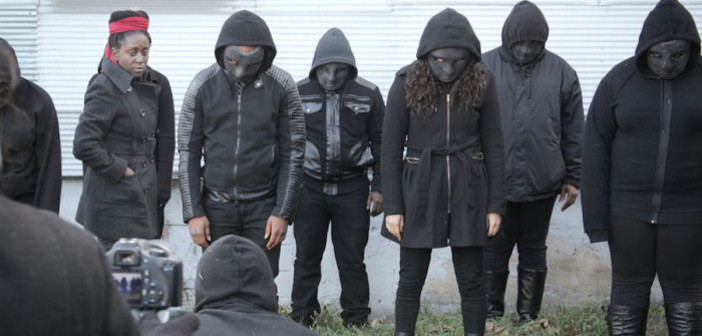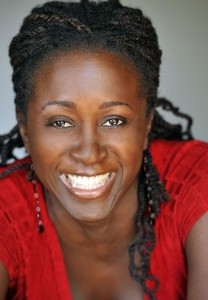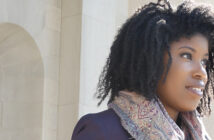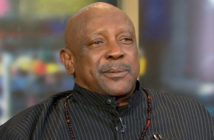Perez Owino is an actor and filmmaker of Kenya roots who moved to the U.S. in 1995. While living in Los Angeles she observed a known and unfortunate situation, a lack of contact between African immigrants and African Americans.
“I didn’t know any of my neighbors,” says Perez, “And I’m sitting there and thinking ‘What is this? What is this fear?” She decided to explore the fear by interviewing people from both backgrounds as well as facilitating on-camera conversations between the two contrasting but similar groups.
BOUND: African v African-Americans is a hard-hitting documentary that addresses the little known tension that exists between Africans and African Americans. The film opens with personal testimonials that expose this rift then walks us through the corridors of African colonialism and African American enslavement, laying bare their effects and how these have divided and bound Africans and African Americans.
Topics ranges from the fear that some African immigrants have over African Americans based on media stereotypes, to misconceptions about contemporary life in Africa and discussions regarding a “black identity” that can include all Americans from the African diaspora.
ARM’s Akin T. George was in touch with film director Perez Owino to discuss about her compelling documentary which recently premiered at the Toronto Black Film Festival, TBFF.
What necessitate the need for this documentary?
This present moment does. Look around the world, there is a great human discord at play, everyone is shouting, wanting to be heard. But we don’t realize that with everyone shouting no one is listening.
Does this need arise from personal experience or from societal trends?
Both, one cannot erase oneself from the human equation. You can’t! Whatever is going on in the Middle East, Africa, America and Europe, at the cost of sounding like a cliché sci-fi log line, is all connected. This documentary was birthed by my own bad habit, my -isms and the -isms of those around me. So if I want to change, I first change myself, then my surroundings.
In the short and long terms, what goals do you aim to achieve with this documentary?
In the short term, have people of African descent talking and getting to the heart of what the heck is going on in our communities. Our past happened, we can’t change that, but we can look at how its affecting our current situations; the gang violence, civil war, corruption, lets figure out what changes need to be made. Yes feelings are going to get hurt but that sort of pain is temporary. The death that results from the ills in our communities is permanent. Which would you rather have? And then the conversation circle get larger and larger with different “races”, sexual orientations, religions, and genders until we get to the long term goal, the end racism and every other -sim. How is that for a dream? And I believe we can do it, we are humans!
Most educated African immigrants tend to get along with Whites or their fellow Africans rather than African-Americans, can we ascribe this dichotomy to lack of knowledge on both sides?
I can ascribe that to a lot of things. One, the African’s default setting is not race but ethnicity. The African American is race as opposed to ethnicity. So to the African, the European is not perceived as a threat but a friend, spouse, partner and in some weird cases, a savior. But that is another conversation. Two, is the issue of the social-economic class the African comes from. Class brings with it a different set of expected behavior and who to hang out with. Three, the average African does not come to America to make friends but to succeed in his or her desired field. Meaning her/she will only spend time with people in that field at his or her level of success. Four, add on to that the unwritten African rule “be respectful when you are in someone else’s home/country etc.” most Africans will tend to shy away from anything or anyone they perceive as disrespectful or placing them in a situation that may come off as disrespectful. Then add the fifth, the lack of knowledge and you have a recipe for isolationism that may not necessarily be a conscious one. But what happens in that isolated state is the last nail on the coffin. Hearsay and media images feed our idea of each other.
Why do you think African-Americans are generally resentful of African immigrants or vice-versa?
That is for individual Africans and African Americans to answer. But there is one accusation Africans get that I must address, “you act like you are better than us”. Yes, Africans do have a sense of pride but it is not because they feel better than anyone it is because they don’t feel less than anyone. That “head held high”, regal air, that is Africans merely reflecting to you who you are. Self-pride should never been seen as a vice, especially when it comes from a people who are so maligned.
To what extent is media stereotyping black Americans and Africans has to do in the divide?
It all depends on how much one consumes. But you can’t let the media teach you about the world around you. That is highly irresponsible.
Hollywood films over the decades have characterized Africans as crude, savages, stupid, loud and everything negative – could you say that this is one of the major contributing factors of the misconception between African-Americans and Africans?
I think it is deeper than that. Africans being portrayed as savages wouldn’t be an issue unless African Americans felt that insult was also directed at them. And vice versa for Africans and “Black” violence etc. But the more powerful question is how do we stop being bothered by other people’s perceptions of us? But letting our conversations with each other, inform our perceptions of ourselves.
Look there are over a billion people of African descent around the world. It is ridiculous to expect us all to get along or be of the same mind. The French and Germans are of the same background but they feel a particular way about each other thanks to their history but they find a way to work together. We don’t have to agree but can we can work together to better our lives.
White Americans travel to Africa by far more than their black counterparts – How can more African-Americans be encouraged to embrace trips to Africa?
By figuring away to pay for it. Here is an idea, free round-trip ticket and accommodation awarded to every African American to visit an African nation of their choice. I think the participant nations of the Trans-Atlantic Slave Trade can make that happen. Ghana, Benin, are also giving out land. Just an idea.





